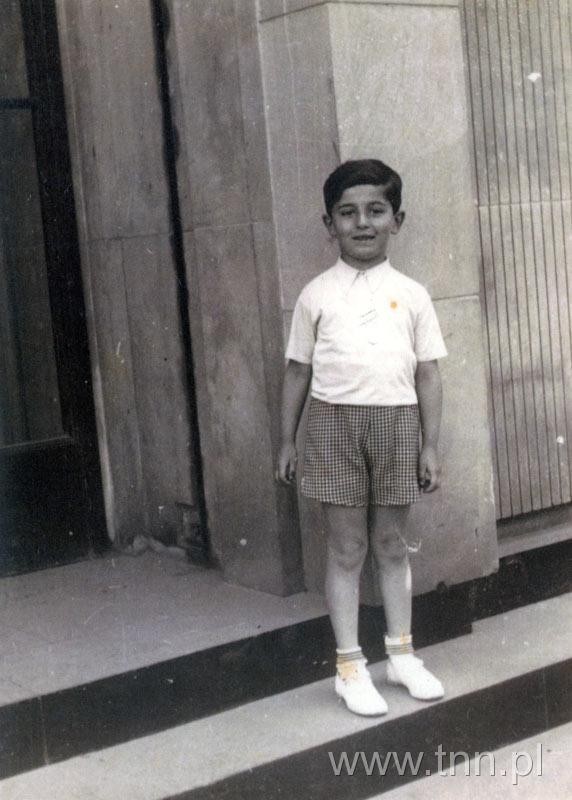Henio Żytomirski was born in 1933 in Lublin, in a progressive Jewish family. His mother Sara worked in a stationery store. His father Szmuel was an activist of Jewish organizations, e.g. He-Halutz, Dror, and the HIAS Emigration Society, and the chairman of the Poale Zion Right party in Lublin. He was involved in promoting secular education in Hebrew and taught history, literature and the Hebrew language.
In the family archive of Neta Żytomirska-Avidar, Henio's cousin living in Israel, several photographs of Henio, as well as family correspondence have been preserved. The pictures show a growing boy, surrounded by family and friends, or during walks with his beloved grandfather Froim Żytomirski. The last photo of Henio was taken on 5 July 1939, the day he learned to ride a bicycle on two wheels. Such stories survived in the family memory thanks to Neta's father. Leon Żytomirski, Szmuel's brother, left Lublin for Palestine in 1937 and was therefore the only family member to survive.
When the Second World War broke out, Henio was six years old. He never managed to start school. On 24 March 1941, the Germans established a ghetto in Lublin, where they resettled all the Jews. In the deserted apartments of Jews, Poles were accommodated. One of them, Józefa Paciorkowa, recalled that moment as follows: “The apartments we saw filled us with horror. Everywhere there were fresh traces of people who must have left their homes in some enormous haste. A meagre dinner that someone had only begun cooking, a half-empty glass of tea or a bed in disarray... We were assigned a flat in the house at 3 Szewska St.” It was the tenement house where Henio used to live.
“How was Henio growing up in those days? What horrors did his eyes witness? What were children his age doing in the ghetto?” Neta wondered thinking about her little cousin. The correspondence sent from Lublin reflects the tragic living conditions of the entire family. The boy is mentioned for the last time in a letter sent in the summer of 1942 from the residual ghetto of Majdan Tatarski. Szmuel Żytomirski wrote then to his brother Leon: "I am together with Henio." In November, the ghetto was liquidated and its residents were sent to the Majdanek camp. Children, the elderly and those unable to work perished in the gas chambers.
